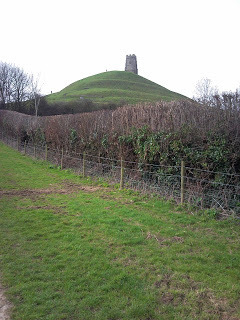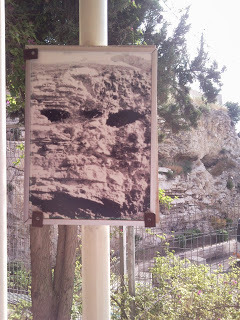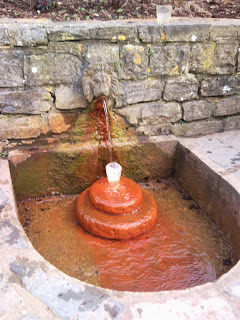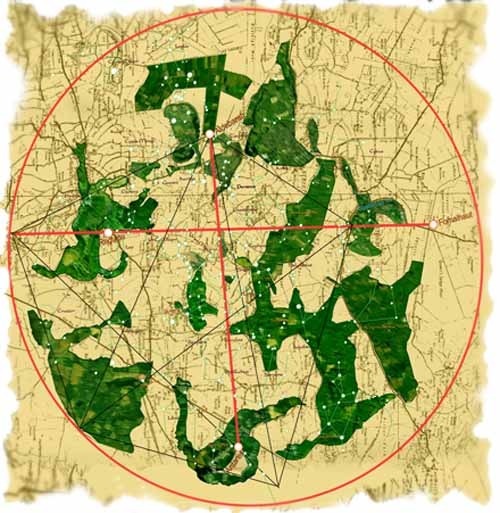date newest »
newest »
 newest »
newest »
 Sure, Les.
Sure, Les.Yes. So, we spend pretty much all our thinking time in the past or the future, personally and in groups, neglecting the present moment entirely - a key component of the liar's game.
But the present moment is the only thing we can be totally sure of. Now. Everything else is judgment, and quite often suffering too; regretting the past, wishing on the future.
No part of human perceptual experience escapes these distractions. Here, I referr to common historical scholarly efforts, and whether or not they can have any importance once we shift into present moment consciousness, 'now' consciousness.
I hope that clears it up a bit.
:)
 Niramisa wrote: "Sure, Les.
Niramisa wrote: "Sure, Les.Yes. So, we spend pretty much all our thinking time in the past or the future, personally and in groups, neglecting the present moment entirely - a key component of the liar's game.
Bu..."
I guess (scratching head). I'll get back to you.
Les H
 Les wrote: "Niramisa wrote: "Sure, Les.
Les wrote: "Niramisa wrote: "Sure, Les.Yes. So, we spend pretty much all our thinking time in the past or the future, personally and in groups, neglecting the present moment entirely - a key component of the..."
To add to my previous post: Okay, head scratching completed.
It is a waste of time and emotional energy to engage in regretting what has happened or worrying about what might happen. Neither suffering nor wishing accomplishes anything real. The enlightened (in the best possible sense) simply acknowledge their mistakes, adjust their attitudes/perceptions accordingly, and go forward, making what appear to them to be the best choices now. (Not that I never have or do now waste time regretting and wishing!)
Re “historical scholarly efforts”, almost all such are nothing more than opinions based on unstated assumptions and supported by no evidence beyond other scholarly opinions. We should accept as credible only opinions by those who clearly state their initial assumptions, describe their methodology, present verifiable evidence, and explain the reasoning that connects their conclusions to the evidence. This is the methodology of scientists, not of scholars, theologians or any others, especially of the propagandists who form virtually all public opinion today.
I have applied this methodology to digging out messages from the Bible with truly startling results. Almost all we are taught about that message is not supported by the evidence and for the most part can be traced back to the “scholarly thinking” of Augustine.
The past holds the experiences that shaped the decisions that shape our future and should be treasured because of that. It is foolish to think we can live wholly in the present without experiencing future unpleasantness. If our goal is to live in peace and freedom, we should recognize and treasure our past and our present, letting both inform us in making wise decisions leading to pleasant
consequences.
Based on what I’ve seen and understood of your writings, except for your love affair with the present I believe we are not far apart in our thinking.
Regards,
Les H
 Hi Les, I agree with you.
Hi Les, I agree with you. All this is very well put.
I would, however, challenge your statement:
"It is foolish to think we can live wholly in the present without experiencing future unpleasantness."
I don't think anyone thinks that actually. But, living wholly in the present moment necessarily eliminates any thought of the future. So, it's kind of irrelevant anyway.
Sure, we have problems, but they are moment to moment, and not feared as inevitable, fearsome things, horrors bound to be coming up.
Therefore, we can act from a place of peace, rather than from a place of fear, in the present moment. And any action taken on that basis is going to be more useful.
For example, if I panic when I see the children run innocently into the fire, I might break an arm as I drag them out forcefully, fearfully, angrily. If I quietly, assuredly, get them away from the fire safely, without a single thought of "what-if", this is going to be more helpful.
They will get a telling off though, in case they think I'll be there all the time to pull em out all the time.
:D








Niramisa, I liked what you had to say, but you totally lost me with that last comment. Could you please expand on that thought a little?
Les H